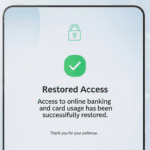Starting a business in Korea as a foreigner is absolutely possible, but only if you clearly understand the hidden rules, systemic risks, and cultural barriers that no official guide ever explains.
I’ve assisted many foreign entrepreneurs, reviewed actual documents, communicated with Korean tax offices, immigration officers, banks, and corporate service providers. And the biggest discovery is this:
Foreigners don’t fail because their business idea is bad—they fail because Korea’s system was never built with foreigners in mind.
This guide reveals the 20 most important truths you must know before starting a business in Korea as a foreigner, based entirely on real cases and practical experience.
1. Korea Has Two Separate Systems: One for Koreans, One for Foreigners

When a Korean starts a business, the process is fast and predictable. For foreigners, the same steps trigger completely different requirements, risk checks, and document requests.
This is the core reason why starting a business in Korea as a foreigner feels confusing. The law allows it, but the system treats every step differently for foreign nationals.
2. Your Visa Determines Whether You Are Allowed to Run a Business

Korea operates on a “visa-authority-first” model. Even if the tax office approves your business registration, immigration may still consider your activity unauthorized.
Common visa restrictions:
- D-2, D-4: business not allowed
- E-2: self-employment restricted
- E-7: limited to your designated profession
- F-6, F-2, F-5, F-4: nearly unrestricted
- D-8 (Investment): fully allowed
Many foreigners accidentally violate immigration rules because they assume a business registration equals permission to work. It does not.
3. Opening a Business Bank Account Is Harder for Foreigners

Banks require strong evidence of legitimate business activity:
- office lease contract
- business website or brochure
- business plan
- contracts or invoices
- local phone verification
This additional scrutiny exists because foreigners are categorized as high-risk under financial regulations. Without proper documentation, your account may be denied or frozen.
4. Different Offices Give Different Answers — And All Are “Correct”

The Korean system is decentralized. Immigration offices, tax offices, banks, and district offices interpret rules differently. This is one of the most common challenges foreigners face.
Two people asking the same question often receive two completely different answers.
5. Some Business Categories Are Restricted

Foreigners cannot freely open businesses in certain industries due to national security or regulatory concerns, such as:
- broadcasting / journalism
- security services
- maritime industries
- financial services
6. Corporate Structure Impacts Visa, Tax, and Banking

Choosing between a sole proprietorship and a corporation affects everything:
- visa strategy
- tax obligations
- bank account approval
- credibility with clients
Foreigners often select the wrong structure and later face immigration difficulties.
7. Tax Authorities Scrutinize Foreign Business Owners More Strictly

Foreign entrepreneurs face higher audit rates due to assumptions about income mismatch or VAT underreporting.
It is essential to maintain transparent documentation from the beginning.
8. Immigration Can Cancel Your Visa if Your Business Looks “Inactive”

Immigration evaluates economic activity. If your business produces no revenue, no hires, or no meaningful operations, your visa may be rejected during extension.
9. Foreigners Often Cannot Use Home Addresses for Business

Banks and tax offices usually require a commercial address. Many shared offices are also rejected for foreign-owned companies.
10. Language Barriers Create Legal and Operational Risks

Most corporate documents, regulatory notices, and tax guidance exist only in Korean. English summaries are simplified and often outdated. Small translation mistakes create major problems.
11. Business Registration Does Not Equal Work Permission
This is the most common mistake foreign entrepreneurs make. Registering a business with the tax office does not grant the right to work under your visa.
12. Hiring Foreign Staff Requires Strict Conditions

E-7 visas require:
- specific job codes
- salary thresholds
- proof of business stability
Companies without strong financials will not be approved to hire foreigners.
13. Korean Clients Expect Extremely Fast Response and Service

The Korean business culture demands rapid communication, precise service, and high consistency. Foreign entrepreneurs often underestimate this and lose clients early.
14. Korean Business Culture Has Many Unwritten Rules

Meetings, negotiations, pricing, customer service, and contract expectations carry cultural context. Understanding these nuances is essential.
15. Korean Bureaucracy Punishes Mistakes, Not Intentions

Even honest misunderstandings result in penalties. Korea’s administrative system prioritizes accuracy over context.
16. Bookkeeping and Records Are Not Optional

The tax authority monitors invoices, receipts, and bank transactions in real time. Poor bookkeeping is one of the fastest paths to penalties for foreign-owned businesses.
17. Korea’s Real-Name Financial System Tracks Everything

Every transaction is tied to verified identity records. This prevents fraud but requires entrepreneurs to maintain steady documentation.
18. Online Businesses Require Additional Legal Steps

E-commerce in Korea requires:
- business registration
- telecommunications sales report
- privacy compliance
- return/refund policy requirements
19. Foreign Directors Have Additional Reporting Duties

Address changes, visa status updates, and travel records can impact the company’s legal standing. These obligations do not apply to Korean directors.
20. The Biggest Mistake: Starting Without Understanding the System
Foreigners fail because they misunderstand how Korea’s administrative, financial, and immigration systems connect—not because their business ideas are bad.
If you need help verifying your business idea, preparing documents, understanding tax requirements, or avoiding system traps that have harmed many foreign entrepreneurs, you can reach out anytime.
Your success depends on accurate information. I help foreigners get it.
JS Network: Solving Korea’s ‘Expat Nightmares’
Colin (Founder) | U.S. MBA | 11+ Yrs Global Experience
My Expertise:
• Expat ‘Nightmare’ Solutions (Visa, Housing, Banking)
• Global Trade & K-Product Sourcing (B2B/B2C)
• Premium Concierge & Travel Support
Contact Now:
📧 [email protected]
📱 Chat on WhatsApp | Chat on KakaoTalk
We respond quickly to all inquiries, but for 24/7 “URGENT” assistance (like a lost ARC or visa issue), please use Kakao/WhatsApp.
(All services are provided in conjunction with appropriate affiliated professionals (lawyers, administrative agents, judicial scriveners, etc.))
© JS Network Co., Ltd. | Expat ‘Nightmare’ Solutions 🌏 www.jsnetwork.co.kr


